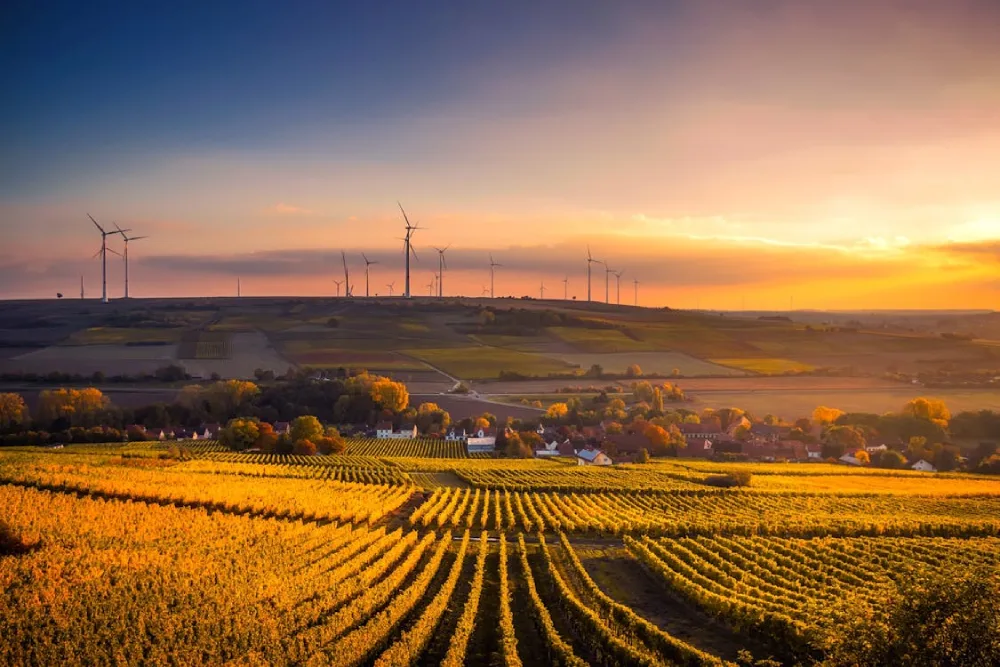Artificial intelligence is the new frontier in technological innovation, promising dramatic change in all sectors, including environmental sustainability. AI leverages the power of vast data sets for a wide variety of purposes, such as optimizing resource management, predicting weather patterns, and improving conservation efforts — all of which aid in safeguarding the world from environmental challenges. From precision agriculture that reduces pesticide use to smart energy systems that improve efficiency, AI applications are reshaping our approach to sustainability.
However, as we embrace AI’s transformative potential, balancing innovation and sustainability goals is crucial. Rapid advancements in technology can sometimes lead to unintended consequences, such as increased energy consumption or the creation of electronic waste. Thus, it is essential to implement AI solutions that drive economic growth and prioritize ecological integrity and social equity.
Synthesizing AI and sustainability offers a pathway to a greener future. Still, it requires a thoughtful approach that considers both the benefits and implications of these powerful tools. By navigating this balance, society can leverage AI to create a more sustainable world, ensuring that progress does not compromise the health of our planet.
AI Applications in Renewable Energy
AI makes renewable energy sources like wind and solar more efficient through a variety of means. It uses advanced algorithms to analyze vast seas of data generated from energy production and consumption patterns to optimize energy management.
For instance, energy grids equipped with AI can dynamically balance supply and demand, making adjustments in real time based on real-world data. They identify peak usage times and automatically adjust energy flow, reducing strain on the grid and enhancing overall efficiency. Companies like Siemens are already deploying these innovative grid technologies to improve reliability and reduce costs.
This technology shines bright in predictive analytics. By assessing historical weather data, AI algorithms can forecast energy production and consumption trends. For example, predicting cloud cover can help solar energy producers estimate energy generation, allowing for better integration into the grid. Similarly, AI tools can analyze wind patterns to optimize the operation of wind turbines, ensuring they are positioned and activated for maximum energy capture.
Through these innovations, AI boosts energy efficiency in renewable systems and enables smarter decision-making, paving the way for a more resilient and sustainable energy future. By turning historical data into actionable insights, AI is transforming the landscape of renewable energy management.
AI in Agriculture and Food Sustainability
AI is revolutionizing agricultural practices through precision agriculture, water conservation, and pest control. In precision agriculture, AI algorithms analyze satellite images and sensor data to optimize crop yields by determining the ideal planting times and fertilizer application rates. This tailored approach maximizes productivity and minimizes resource waste.
AI-driven irrigation systems significantly enhance water conservation. They utilize real-time data to assess soil moisture levels and weather patterns, ensuring that water is applied only when necessary. This sustainable practice conserves this precious resource and supports healthier crop growth.
When it comes to pest control, AI systems can predict pest infestations using historical data and environmental indicators, allowing farmers to implement targeted interventions. Such proactive measures reduce the reliance on harmful pesticides, fostering ecological balance.
In post-harvest agriculture, AI innovations tackle food waste by improving inventory management and logistics. Smart algorithms forecast demand more accurately, allowing producers to match supply with consumer needs. Emerging technologies, like AI-driven shelf-life prediction tools, assess the freshness of produce, enabling timely sales and reducing spoilage.
AI can be paired with technology like the Internet of Things (IoT) and robotics for truly mesmerizing outcomes. Devices equipped with the IoT can “communicate” with each other while allowing humans to control equipment from afar, while robotics automate difficult tasks. Reduced labor costs, skyrocketing efficiency, and improved crop quality are just a few of the many benefits made possible by taking advantage of this new age of fantastic technology.
Integrating AI into the food supply chain can enhance sustainability, reduce waste, and contribute to a more resilient agricultural system.
Challenges and Ethical Considerations
While AI offers significant benefits for environmental sustainability, it also poses challenges regarding its own ecological footprint. The computing power required for training AI models consumes substantial energy, leading to increased carbon emissions, especially if the energy source is not renewable. Data centers housing AI infrastructure often account for a considerable portion of global electricity consumption, necessitating a shift towards greener technologies.
In addition to environmental implications, the rise of AI raises ethical considerations, particularly in data privacy and equitable access. Collecting and processing vast amounts of personal data for AI training can lead to privacy infringements if not handled responsibly. Companies must prioritize transparency and establish robust data protection protocols to maintain public trust.
Disparity in access to AI technologies can exacerbate existing inequalities. Communities with fewer resources may lack access to AI advancements, creating a digital divide. Ensuring equitable access to AI tools is essential for maximizing their potential benefits across various socio-economic groups.
Addressing these challenges can lead to the responsible development and implementation of AI, ensuring its contributions to sustainability are realized without compromising ethical standards or environmental integrity.
Conclusion
AI and deep learning hold immense potential for advancing environmental sustainability, particularly in agriculture. By optimizing inventory management and logistics, AI enhances supply chain efficiency, reducing waste and improving resource utilization. Innovative AI-driven tools, such as shelf-life prediction algorithms, help farmers minimize spoilage by accurately forecasting demand and assessing produce freshness, fostering a more resilient agricultural system.
However, the implementation of these technologies must be approached carefully and deliberately, as doing so haphazardly can yield many consequences. The energy consumption associated with training AI models can have a significant environmental footprint, particularly if reliant on non-renewable energy sources.
Collaboration is essential to harnessing AI’s full potential for sustainability. Environmental stakeholders, including policymakers, researchers, and the agriculture industry, must collaborate to develop guidelines and frameworks that promote responsible AI usage. This collaboration should focus on minimizing environmental impacts while ensuring equitable access to AI technologies across diverse communities.
By taking proactive steps toward sustainable AI practices, we can ensure a greener future and share the benefits of innovation widely.















